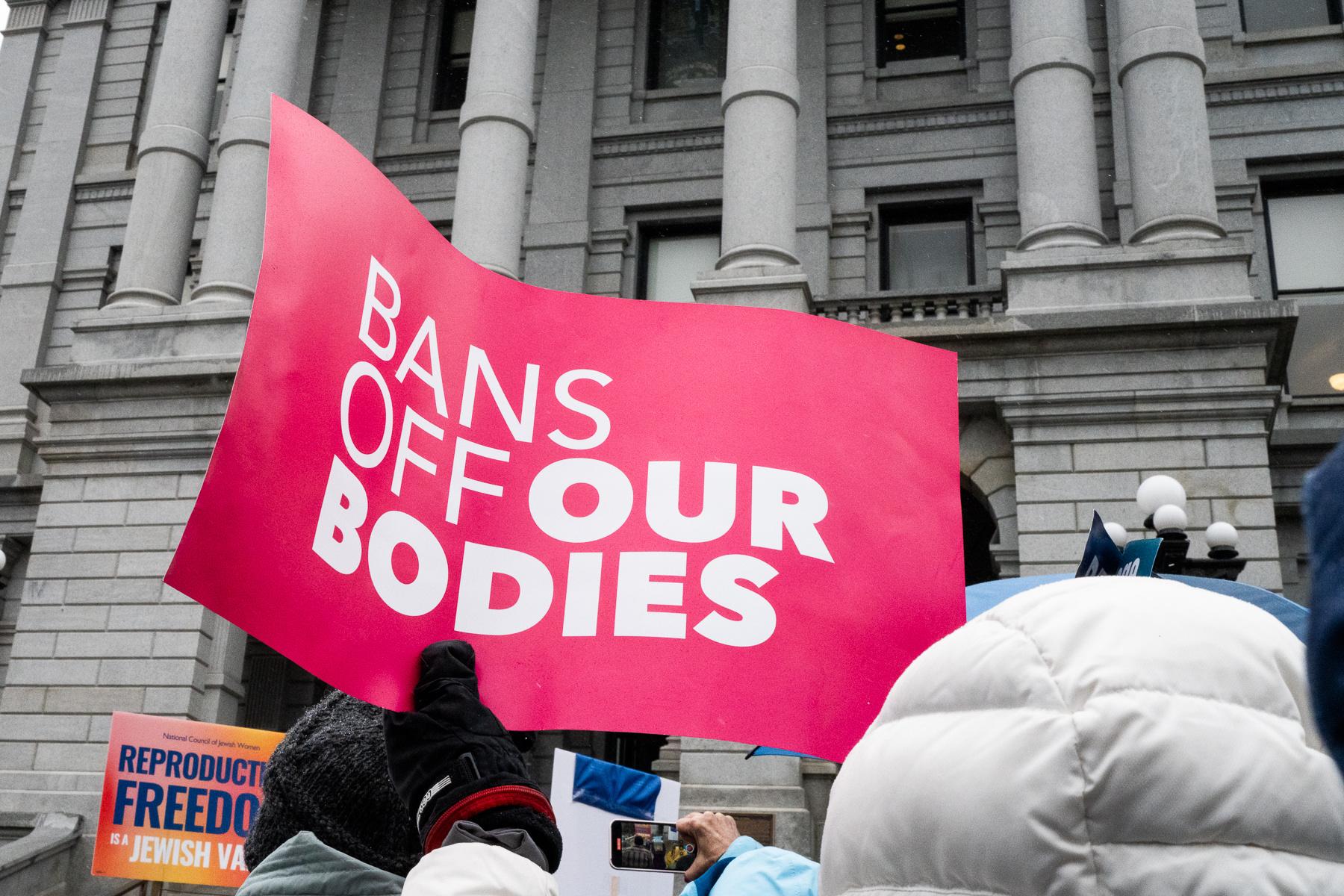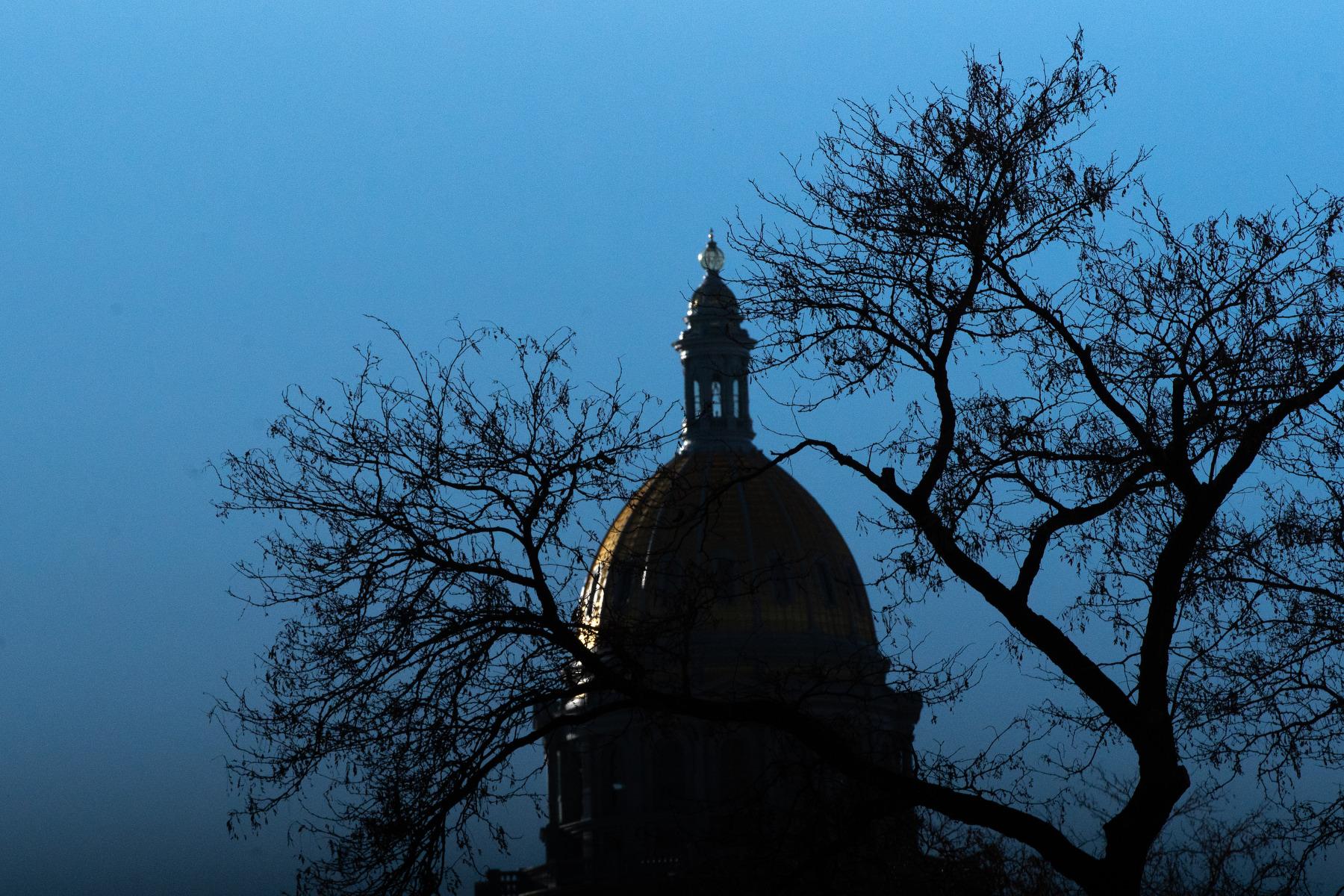
The countdown to May 8, the final day of Colorado’s legislative session, has begun.
This is a make-or-break time for some of the biggest bills moving through the statehouse. And as the stakes get higher, the working days stretch longer. It’s also a time when one rarely-talked about aspect of capitol culture is on more public display: drinking at the Capitol.
While most modern workplaces have rules against mixing drinking with business, there’s no explicit prohibition against alcohol under the Capitol’s gold dome. And the norms can sometimes feel like a relic of an earlier era of office culture.
In recent weeks, CPR News spoke with numerous current and former state lawmakers about alcohol at the legislature. While some said they occasionally have a drink, and others said they never do, all said it’s an accepted part of the culture.
“When we're all done with floor work, we need to unwind. But I think for the most part, everybody has been responsible,” said Democratic House Majority Leader Monica Duran.

Lawmakers are elected not hired, which means legislative leaders are sometimes limited in the rules they can set. But Duran said they do try to step in if someone’s behavior becomes problematic or is impacting their work to a pretty public degree.
“Those would be individual conversations we would have with that particular member,” she said, adding that having been married to an alcoholic, she’s very mindful of alcohol’s harmful impacts.
Legislative leaders can take some actions to push lawmakers to change their behavior, including taking away committee assignments, or restricting how many additional bills they’re allowed to introduce.
“I think there's a lot less tolerance overall today and a lot fewer winks and nods about alcohol abuse,” said Republican Sen. Bob Gardner, a 16-year veteran of the capitol. “But nevertheless, I think alcohol is a problem for some people, not for others.”
Gardner said he’s been concerned a few times over the years that a colleague was struggling and thinks it’s incumbent on leadership to step in for the good of both the member and their constituents.
“We work for 150-plus thousand people in our district, and I've always said that accountability to everybody can somehow, in some ways, turn out to be accountability to almost no one at times,” said Gardner.
This session in particular has brought several reminders that the mixture of alcohol and politics can have significant repercussions for lawmakers, and the public they serve.
It took a DUI arrest for GOP Rep. Mike Lynch to really rethink his views on alcohol at the statehouse.
“There's a lot of reasons to drink here,” Lynch told CPR News while sitting on the side of the House chamber in April. Top of the list: the need to relax in an extremely un-relaxing environment.
“For that medicinal quality, it's understandable. I've tried it both ways and I personally prefer not having any alcohol around.”
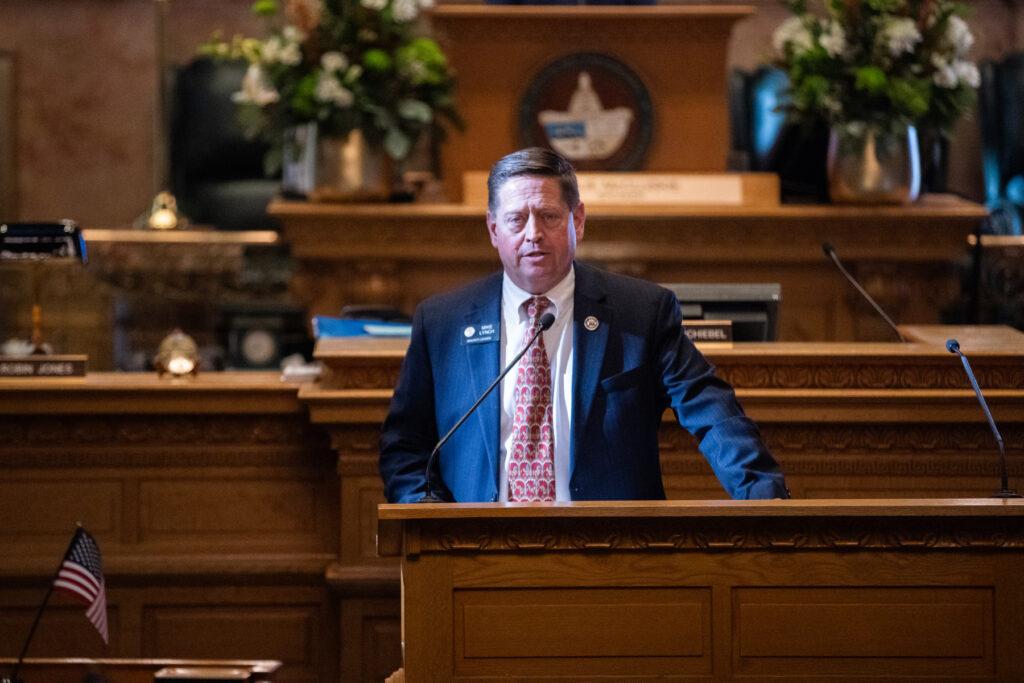
Lynch was stopped by a state trooper while speeding home from a political event in the fall of 2022. Lawmakers were not in session at the time and his arrest and subsequent probation didn’t become public until the Denver Post reported on it last January. After a week of turmoil within his caucus, he stepped down as Minority Leader.
“Be careful,” Lynch told his colleagues when he announced he was giving up his leadership role. “Don't make the mistake that I made, which is to get behind the wheel after I had too much to drink. We have a lot of socializing that goes on here. Thank God in my instance there was no damage done.”
Lynch said well before his situation became public he had already made changes inside the minority leadership office, telling the people working there it was now an alcohol-free zone.
“I realized that it was literally in staff desks and other legislators, and just said, ‘we're just not going to do that. If you want to go drink, don't do it here. It's not professional, it's not the adults in the room.’ It was not the image that I wanted the minority to have.”
In early April, Democratic Assistant Senate Majority Leader Faith Winter announced she was entering substance abuse treatment after appearing intoxicated at a public meeting in Northglenn.
“I deeply regret my behavior last night,” Winter said in a statement at the time. “I made a mistake and I’m truly sorry for any inconvenience or discomfort I caused. I take full responsibility for my actions and am committed to making things right. I especially apologize to the City of Northglenn and the citizens that came out. I deeply care about your thoughts and community.”
Winter stepped down as the chair of the Senate Transportation Committee but returned to work at the Capitol a few weeks ago.

“We've been supportive of her,” said Democratic Senate Majority Leader Robert Rodriguez when the question of her health came up during a recent press availability. “She's taking it seriously.”
However the situation escalated on Wednesday night, when Northglenn’s city council voted unanimously to file an ethics complaint against Winter to the Colorado legislature, alleging that she failed to “uphold her office with integrity.”
Northglenn Mayor Pro Tem Shannon Lukeman-Hiromasa said the council didn’t feel comfortable that Winter was already back at the Capitol working; “to me, that is not entering into a serious recovery program. This is potentially her rock bottom, so from here hopefully she can go up.”
During the meeting Lukeman-Hiromasa said the city needed to send a message to the Senate that “this is not okay.” She said Winter also appeared intoxicated during a private meeting with her and other council members a week before the public incident.
The council also took aim at a culture at the legislature they said is too permissive around drinking. “The rumors circulating around the Capitol that this is accepted is only going to end up getting her or someone else hurt.”
Winter wrote another apology before the vote and asked the council members for empathy as she seeks help.
Senate President Steve Fenberg said Winter is a valued leader at the Capitol.
“It's obviously a public conversation and I think that it's probably really hard going through addiction and recovery and other health issues in the public eye,” said Fenberg.
It will be up to Fenberg, Rodriquez and Senate Minority Leader Paul Lundeen to decide if the ethics complaint should move forward or be dismissed.
Alcohol has long been a part of the culture at the Capitol.
The open prevalence of alcohol came as a bit of a shock for first-term Democratic Rep. Lorena Garcia when she arrived for work last year.
“You walk through and all the doors are open. I was so surprised to see how many offices have multiple bottles of just all sorts of liquor,” recalled Garcia.
Coming from the nonprofit world, she said “you don’t do that.”
But it wasn’t long before someone gifted her a bottle of mezcal. “I put it in my office and I still have it there, and I was gifted another bottle and I have it there.”
While Garcia said she sometimes has a drink and doesn’t judge anyone for drinking, she doesn’t think it’s appropriate on the chamber floor. That was a sentiment many other lawmakers echoed, that an off-duty drink in an office or when work is quiet was one thing, but consuming in the chambers where they debate and take votes crosses a line.
For Republican Representative Gabe Evans, who is also in his second year at the Capitol, his views on alcohol consumption are shaped by his time as an Arvada police officer.
“Some of the worst memories that I have during my ten year career are drenched with the smell of alcohol. So I'm always very, very leery about any sort of public drinking,” he said.
Evans said he doesn’t drink at the statehouse. But as a former member of the military, he acknowledges that a shared drink can be a form of stress release and help build camaraderie.
Many other current and former lawmakers cited those same reasons for why drinking has its place in the legislative session. During those four months lawmakers may be in the Capitol more often than they’re at home, and progress can often come down to personal relationships.
“There were times that a lot of us (Republicans and Democrats) would go out together in an evening and have drinks and a good time,” recalled former Republican lawmaker Don Coram, who served in both the House and the Senate. “And frankly, that may be one of the things that's missing today, because they don't seem to think that they can socialize with each other and become friends.”
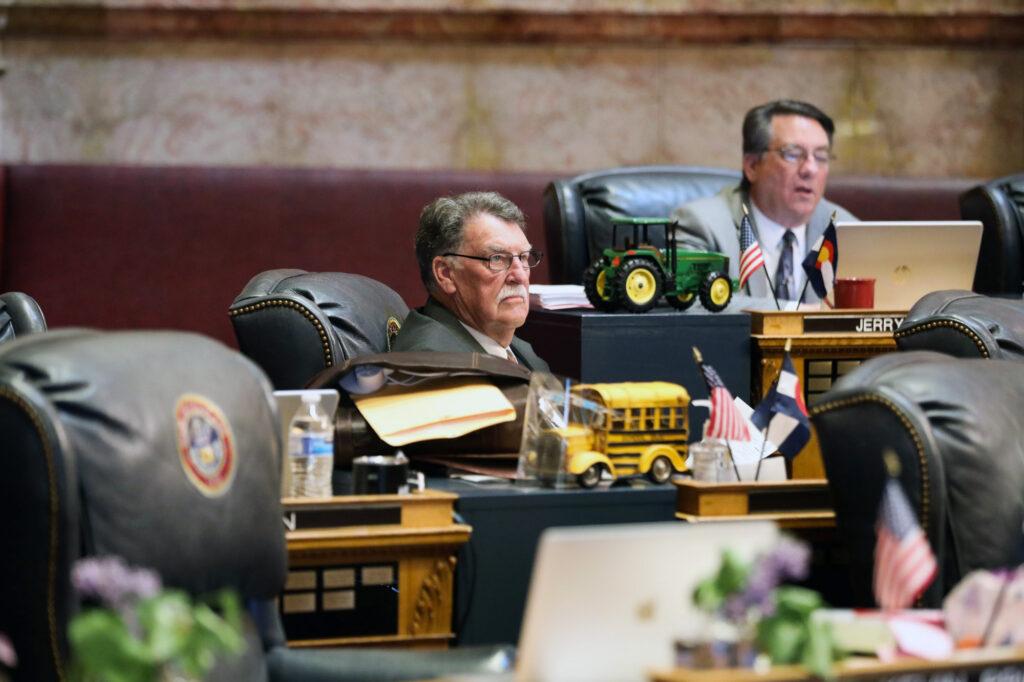
Coram remembers a time when the Assistant House Majority Leader’s office, which sits just off the House floor, was known as a bit of a party room.
“There was a little beer pong that went on, and actually it was bipartisan because (former Democratic legislative leader) Dominick Moreno and I were the champions,” Coram recalled, chuckling.
In his thinking, Coram sees a big difference between having a social drink and overindulging.
“My thing is they need to respect the institution. And this is not a frat house. This is where you do the people's business and you can drink socially and on occasions, but it shouldn't be a regular daily routine.”
Former House Republican caucus chair Lori Saine agrees that alcohol has its place; when consumed responsibly it allows lawmakers to take a pause and form a personal connection with each other.
“It’s actually hard to catch those bipartisan moments anymore,” she said.
Jonathan Singer, who is from Longmont and represented part of Boulder county in the House from 2012 to 2020, said he came to see having alcohol in his office as a way to highlight breweries in his district like Oskar Blues and Left Hand. But his attitude changed once he had younger staff and interns.
“I realized that this was not an appropriate thing to be showing off to people who are underage,” he said.
Singer also said he sometimes felt pressured to drink, as part of working with certain colleagues.
“There were some lawmakers that were very fond of alcohol, and if I needed their vote on something, I might come visit them with a full stomach knowing that they would ply me with drinks.”
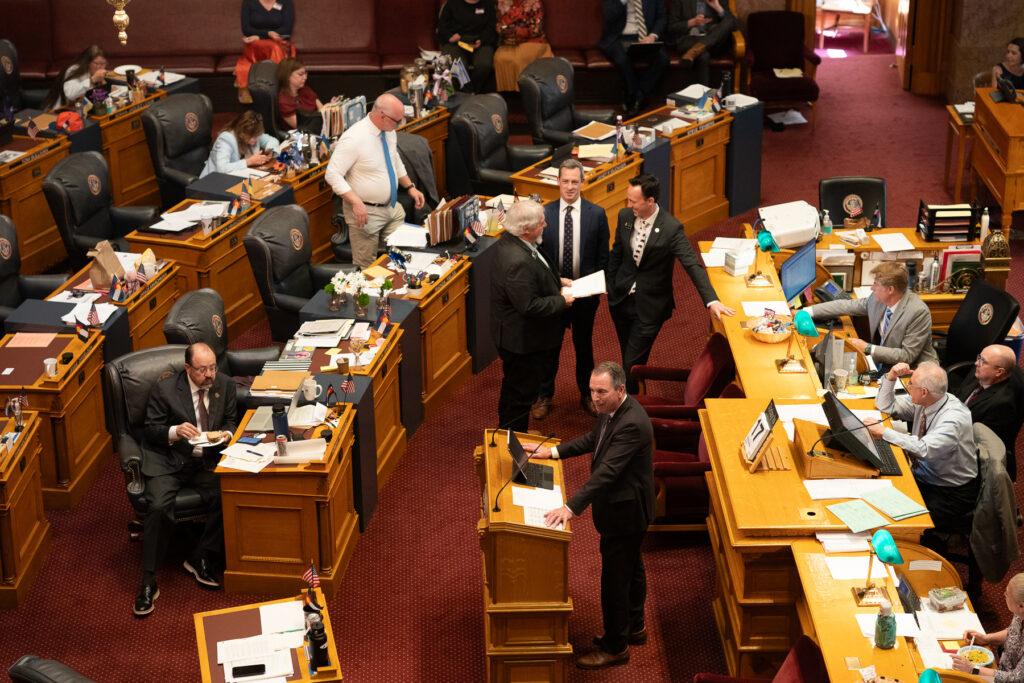
At times, the consumption has been more visible. One senator a few years back maintained a fully stocked bar in her office where lobbyists and lawmakers would hang out while work was still going on, or pour drinks and take them back to the House and Senate.
Permissive attitudes around drinking can at times tilt over to corrode the decorum of the work, some at the statehouse acknowledged, as well as exacerbating any troubles their colleagues have with addiction and over-consumption.
“The use and abuse of mind- and mood-altering substances by legislators while on duty, and willful blindness to it, contributes to an overall environment detrimental to the people's interest in having sober well-considered legislation passed,” said Democratic Rep. Bob Marshall.
The prominence of alcohol in the state Capitol has ebbed and flowed over the years. After the legislature’s reckoning around the #MeToo movement in 2018 and 2019, many working in the building were more cautious about their drinking. The COVID pandemic in subsequent years also curbed social gatherings.
Now, several years out from those shocks, alcohol has resumed its place in the social fabric of the Capitol. Late last session, as lawmakers were wrapping up their work, someone converted a niche outside the House chambers into an impromptu mint julep bar.





